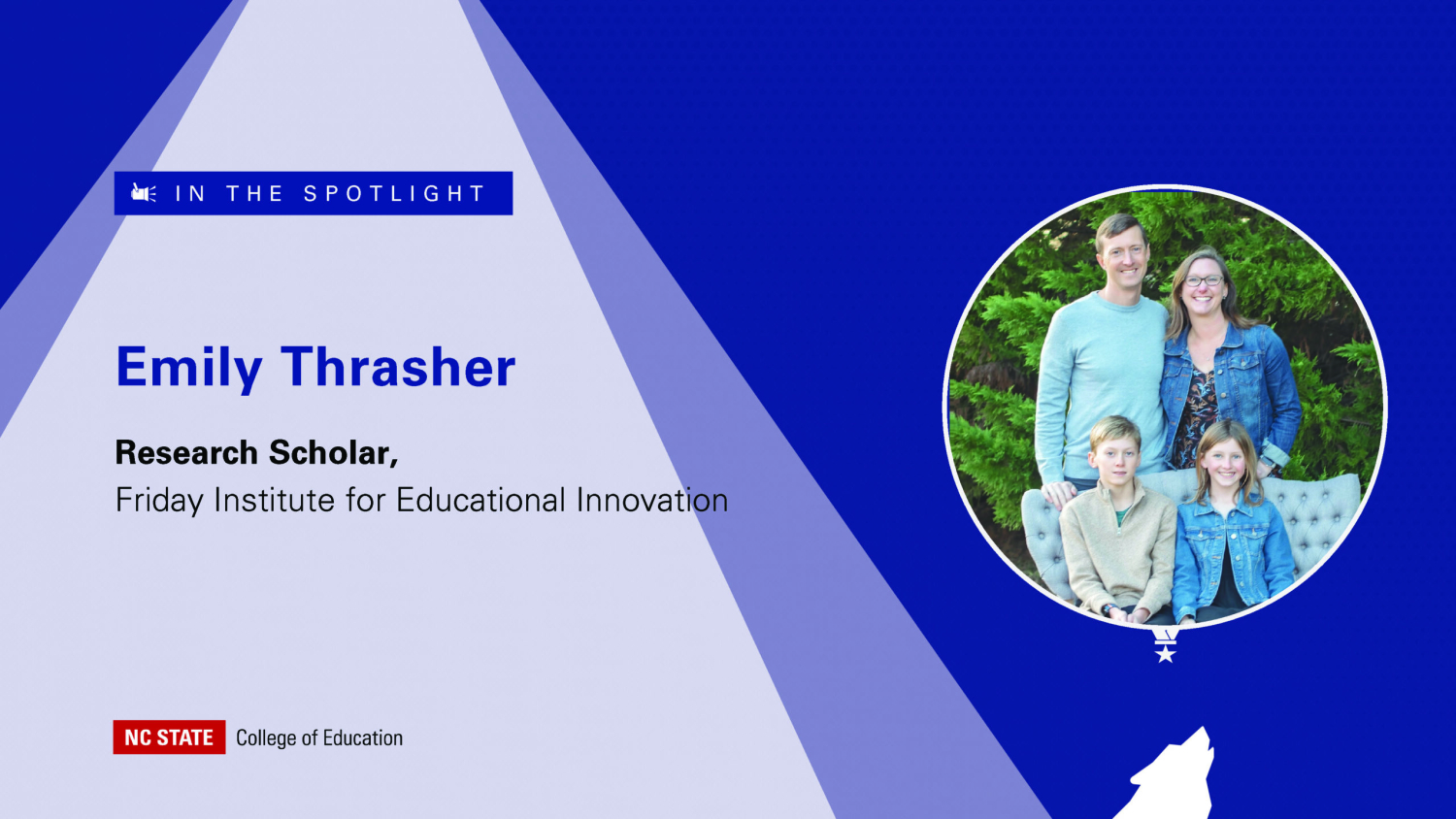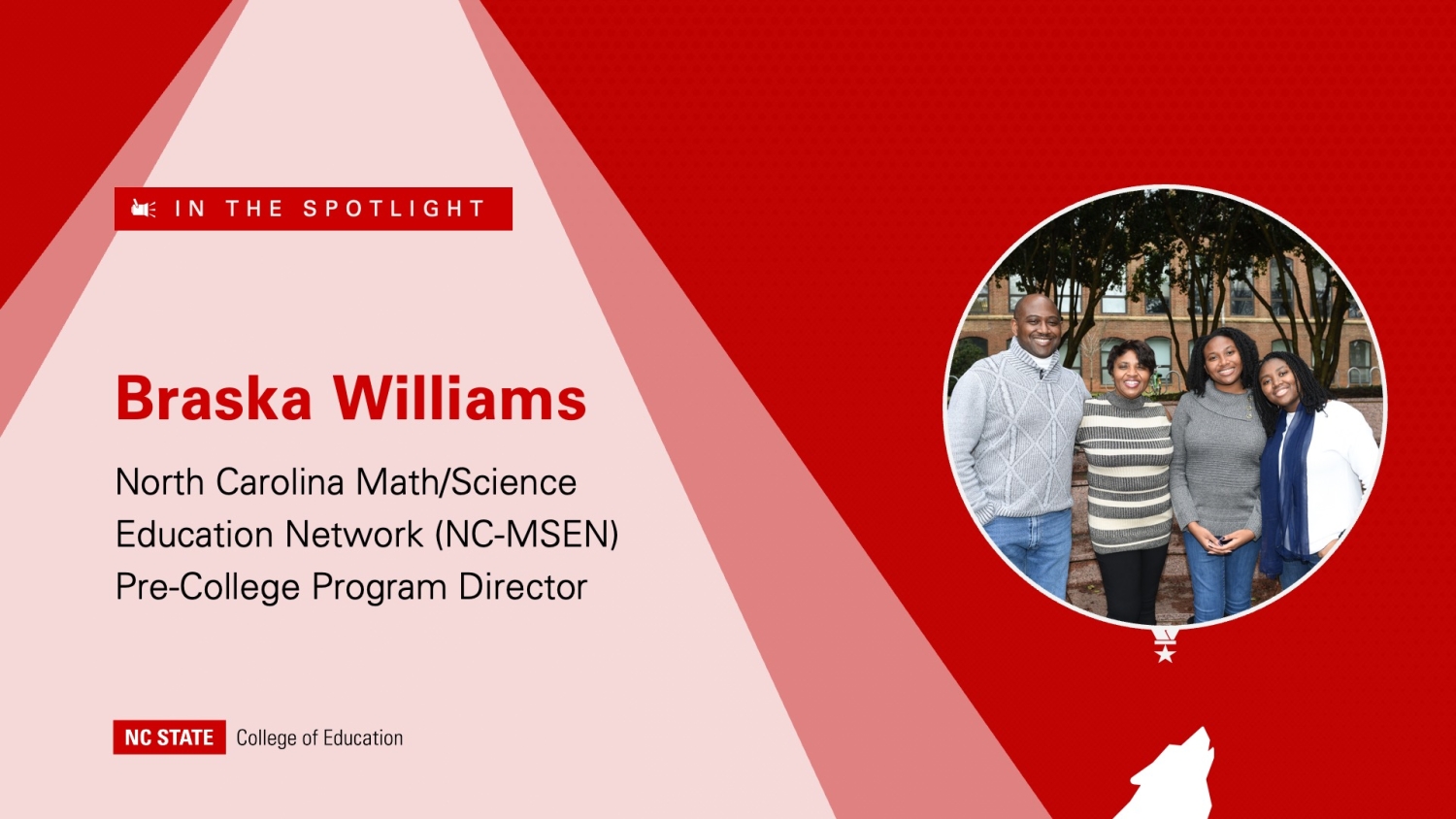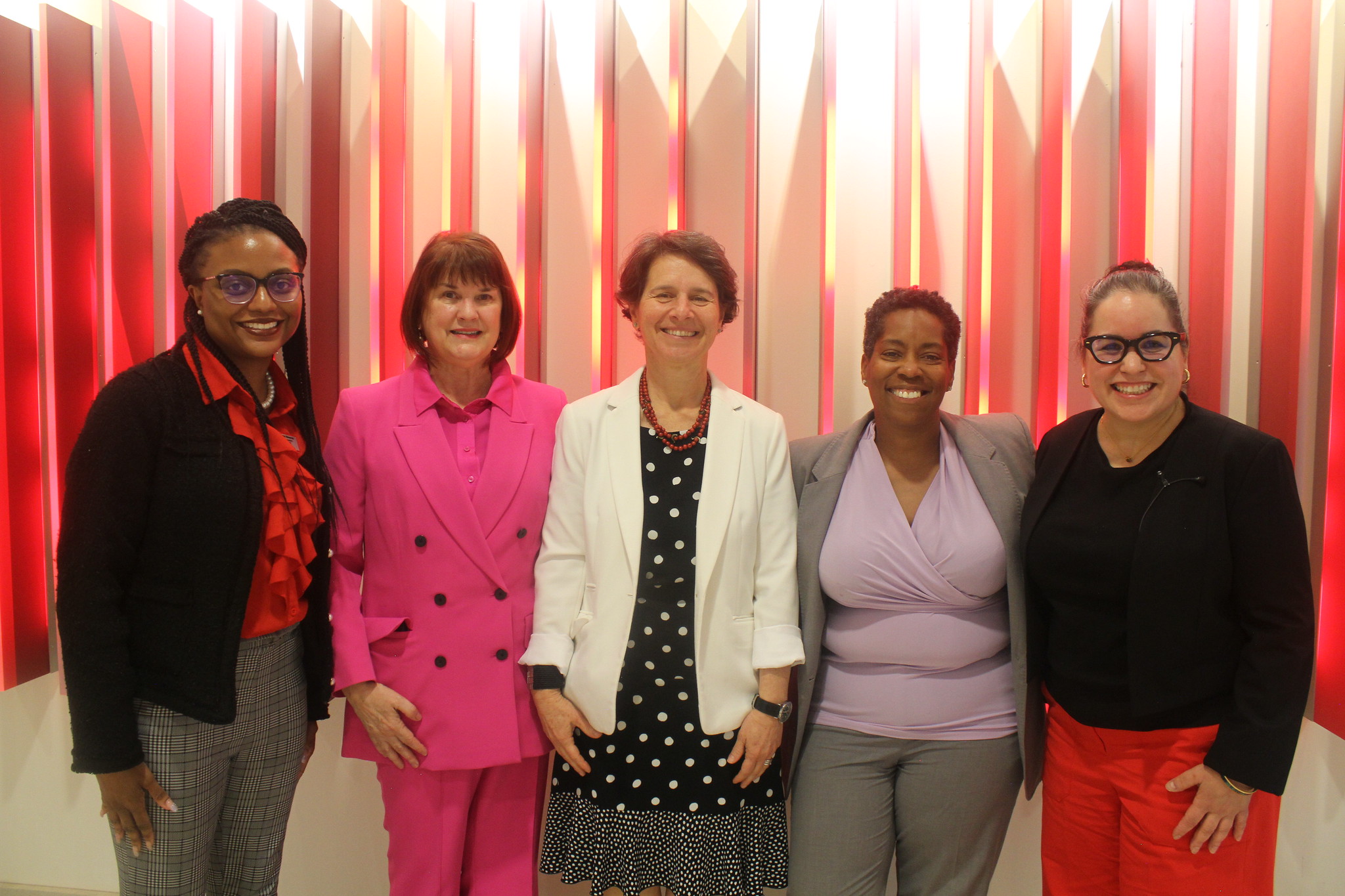5 Questions with…Lindsay Hann on the Best Opportunity to Pursue Educational Research

In fall 2020, NC State sophomore Lindsay Hann found her passion for educational research as a Program Evaluation and Education Research (PEER) intern at the Friday Institute for Educational Innovation (FI). After three years in the program, she’s been the lead intern, presented at several conferences and was recently accepted into the American Educational Research Association (AERA) Undergraduate Student Education Research Training Workshop. Hann will continue her education in the University of North Carolina at Chapel Hill’s Master of Educational Innovation, Technology, and Entrepreneurship (MEITE) Program but wants to return to NC State for her Ph.D. in educational policy or educational research. Learn more about Hann and the internship program below.
What makes the internship program at the FI unique?
The PEER internship program at the FI is unique because of the numerous doors of opportunity available for each student. Not all students are majoring in education-related fields, yet there are still numerous projects and opportunities for each one of us to succeed. Your mentors provide opportunities that will not only help you in the present but help excel in your future career, wherever that may be. I found out about the AERA Undergraduate fellowship opportunity because members of the PEER group sent it to me. The FI invests in its interns, and I don’t think you find that in many other places.
What opportunities has this internship provided for you?
I have had a plethora of opportunities while a part of the internship. Some of them being getting promoted to lead intern and having the chance to practice and enhance my leadership skills, writing reports and debriefs alongside graduate interns, and attending and presenting at educational research conferences such as the Eastern Educational Research Association (EERA) in Myrtle Beach and the North Carolina Technology in Education Society (NCTIES) in Raleigh. However, my most cherished opportunity as a member of the internship is the connections and people I have met along the way. The FI is filled with brilliant and passionate individuals who have shown me how much they love their job and have inspired me to follow in their footsteps.
What are you taking away from the program?
I am taking away so much knowledge and real-world experience from this program. Over the years, I have had the opportunity to work on projects with all different companies, nonprofits, universities, educational departments, etc. Through this, I have gained a better understanding of how the wheels of educational research turn. I’ve gotten to see projects from beginning to end and even had the opportunity to lead a project of my very own with Dr. Edwards (the intern program manager). These experiences have prepared me for what my future in educational research will look like and has shown me what the proper setup and structure of a successful partnership with other organizations looks like.
[pullquote cite=”Lindsay Hann” color=”pyromanflame” align=”alignright”]The FI invests in its interns, and I don’t think you find that in many other places.[/pullquote]
Why did you choose to stick with the program for so long and be its lead intern?
I have chosen to stick with the program for so long because I genuinely don’t know if there is a better opportunity to learn and pursue educational research for undergraduates at NC State. Every year, the program has offered me new opportunities, and I wish that NC State offered a master’s program in an educational research-related field because I would have loved to continue at the Friday Institute as a graduate intern.
What is the AERA undergraduate fellowship and what does it mean to you to receive it?
The workshop is specifically catered to undergraduates who plan to pursue a Ph.D. in educational research or related fields. Throughout the week I will gain an overview of the field of education research and significant areas of inquiry, address how quantitative and qualitative research methods are used in studies and present some innovative methodological approaches, and speak to the relevance and applications of research to education policy and practice. Faculty and researchers from the American Institutes for Research, Educational Testing Service, NORC and Rand will guide the sessions. To wrap up the weekend of the workshop, I will be given the opportunity to present my own research and gain valuable feedback and insights.
To be accepted into this fellowship reaffirms all the wonderful words of encouragement and praise that I have received at the Friday Institute. I have worked hard over the past three years at the FI and have found a passion of my very own that I get to pursue. Through this opportunity, I will continue to set myself up for success and become the very best educational researcher I can be!
- Categories:


